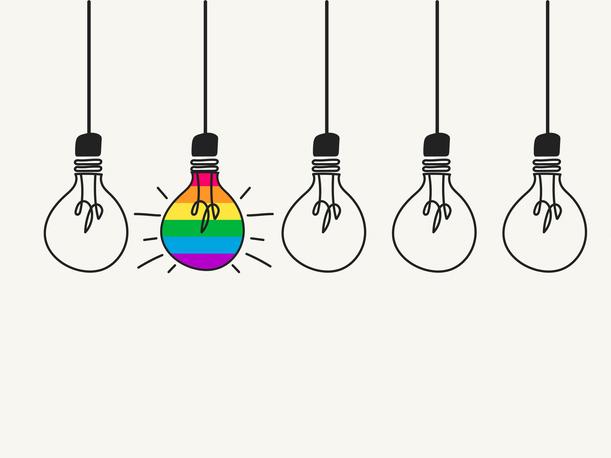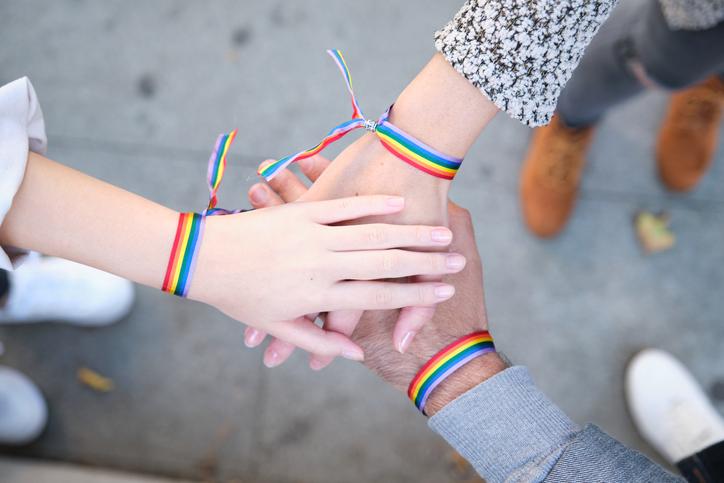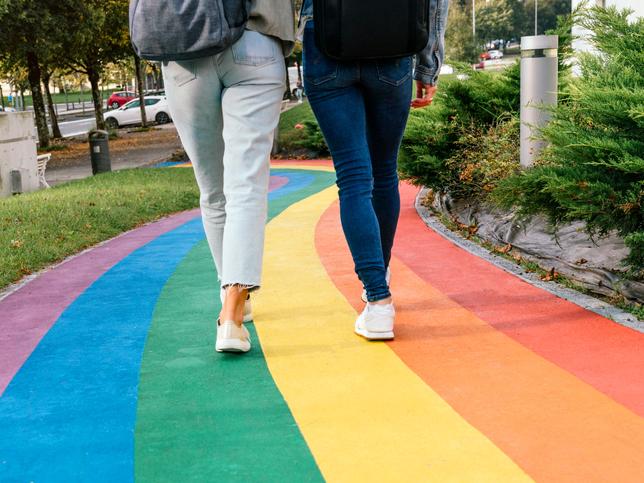
‘Creative writing can be as impactful as an academic paper’

You may also like
Last year marked two decades since the repeal of Section 28, a UK law that prohibited what was described as “the promotion of homosexuality” by local authorities. What this meant, in practice, was that generations of LGBTQ+ children grew up with no safe access to information about LGBTQ+ issues, no role models, no representation. They had no indication, in fact, that they could have a successful life that included employment, acceptance and community.
Surely, as hubs of knowledge production, higher education institutions have a social and ethical responsibility to actively repair some of the damage wrought by this law. As LGBTQ+ staff in the sector continue to report discrimination and erasure, are we providing enough opportunities for our students to see their own lived experiences roadmapped and reflected?
- Pride in HE: how to create an inclusive community online
- I’d tell my younger self that my chequered past would be my strength
- Making LGBTQ+ individuals feel safe, valued and empowered on campus
While institutional support and backing are essential in amplifying LGBTQ+ representation and visibility, staff on the ground can also make an impact through grassroots initiatives. And where better to push back against the fearmongering of Section 28 than from a place of love? For author, theorist and educator bell hooks, all key social justice movements have promoted a love ethic: a practice that seeks to use knowledge, responsibility, care, trust, respect and commitment. How might that look in your professional context?
In mine, I have had the privilege of coordinating a creative writing competition for LGBT+ History Month. Here’s some of what I learned.
Knowledge and responsibility
It’s natural to feel powerless against discrimination. However, take heart – there’s no one defining form of activism. You may not feel you have the capacity or physical ability to protest in the streets or the wherewithal for a strategic campaign. That doesn’t mean you have nothing to contribute to the cause of a more inclusive landscape in higher education. We each have our own offering of knowledge, skills and interests to share. These needn’t exclusively be academic pursuits.
What brings you joy? Perhaps it’s a gentle walk in nature or listening to a podcast or crocheting. I’m partial to all three…and I also enjoy using writing to make sense of my inner and outer worlds. A couple of years ago, I started facilitating LGBTQ+ creative writing for well-being sessions in my local community. Last year the chair of our university LGBTQ+ focus group asked if I would use this experience to make our campus more inclusive. We agreed that I would deliver a drop-in session exploring the importance of queer representation, and that I would coordinate a creative writing competition around the same theme. As a “late bloomer” bisexual who grew up with a dearth of positive representation, I felt a responsibility to be visible in our university community. I had first-hand experience of the possibilities that creative writing affords for healing and growth. I am also well aware of how stifling and impenetrable academic writing can feel for many. I saw the creative writing competition as an opportunity to put self-expression firmly back into the hands of a marginalised community.
Care and trust
Over the past two academic years, I have gained important insights into developing the competition process with care and establishing trust with our participants. Working with students with protected characteristics means a vital aspect of care is gaining consent at multiple stages. For trans students, for example, being named in certain contexts could have immediate and severe material consequences. One student sought me out during graduation week last year to ensure they would be dead-named – otherwise, they said, they wouldn’t be able to return home with their parents after the ceremony.
This has fed into my experience with the competition. Just because someone has entered doesn’t mean they will feel willing or able to be named in a university update or read their piece at a public event. However much you think you’ve tied up loose ends, please double-check. It’s better to be mildly irritating with an abundance of care.
That said, please don’t let the need for caution be off-putting. Demonstrating this level of care is foundational to developing trust. Repeatedly checking in with participants about how they are represented also helps to build a sense of agency they may not always feel they have in wider society. Liaise with those in your initiative whenever a new context arises in which they may be named.
Respect and commitment
University community members who participate in our writing competition are occupying a brave space, and this demands our respect. We value our staff and students’ intersectional identities and recognise how vulnerable it can feel sharing those parts of yourself in your place of work or study. I have shared some of my own LGBTQ+ journey during the drop-in sessions. Another sign of respect has been the active and enthusiastic engagement from our executive director of communications and development, who has sat on the judging panel both years. Having buy-in from senior management is indescribably validating not just for our entrants but for the wider LGBTQ+ community at the university.
Commitment to such an initiative can take many forms, the most essential of which are reflection and learning. For example, our inaugural winner, Allison Rosewood, submitted a non-fiction piece about becoming the trans role model she had always sought herself. We platformed her work at the university Pride event – she was unable to speak in person, so we recorded her reading her work and played it during the Pride Literary Hour. We invited Allison to sit on the 2024 judging panel, and the award has been named the Allison Rosewood LGBTQ+ History Month award. Now, our winner will always be invited to read at Pride and to sit on the panel. Allowing the project to evolve has helped create space for students to have their experiences and identities validated, and to build an archive of visible role models.
This year, our prompt invited entrants to imagine a world where Section 28 had never existed. Mac McClelland’s winning entry, Brianna, is staggering. The piece eloquently draws a line from past to present, highlighting just how far-reaching and damaging legislation in this vein can be. Opening the door for this creative expression has resulted in something that, in my opinion, is as impactful as an academic paper.
Knowledge, responsibility, care, trust, respect and commitment, then…what’s coming to mind for you? Perhaps you owe it to yourself and your community to explore your own initiative. One caveat to this: please also apply a love ethic to yourself. Does the thought of a project like this make you weary? You may be running low on reserves, especially as we so often expect members of marginalised communities to advocate and enact positive change themselves. Someone else can take up this mantle, and that’s fine, too.
The legacy of Section 28 is a traumatised, under-represented LGBTQ+ community and a wider UK society that still often struggles to accept those living outside a heteronormative, cisnormative version of reality. But if you do have the energy and resources, projects like ours can be transformative for individuals and institutions. As bell hooks wrote: “When we are taught that safety always lies with sameness, then difference, of any kind, will appear as a threat…The choice to love is a choice to connect – to find ourselves in the other.” Let’s work to make our institutions a place of connection and relish all the richness of experience that entails.
Emily Downes is senior student success tutor (academic writing) and LGBTQ+ Focus Group co-chair at Teesside University.
If you would like advice and insight from academics and university staff delivered direct to your inbox each week, sign up for the Campus newsletter.


